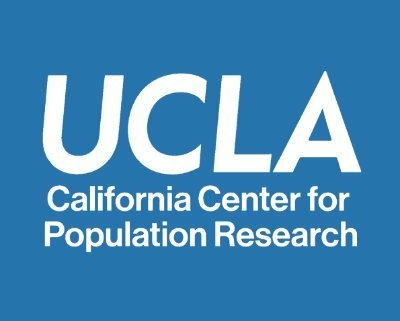
Biography: Caitlin is a doctoral candidate in Sociology at UCLA. She is broadly interested in inequality in educational and occupational attainment, the role of education in social stratification processes, and policy approaches to addressing poverty and inequality. She is also interested in applications of causal inference using large-scale survey data. Her dissertation explores the ways that initial college enrollment decisions shape the transition to adulthood, with a focus on the least selective four-year college options. Caitlin is a student affiliate at the California Center for Population Research and a research fellow for the Los Angeles Education Research Institute. In the fall, she will start a postdoctoral fellowship with Stanford Impact Labs, where she will be studying the effects of guaranteed income and baby bonds with the Economic Inclusion Project.
The Power of a Degree: Examining the Direct and Indirect Effects of Broad-Access College Enrollment on Economic Disadvantage
Abstract: As the availability of high-quality jobs for less-educated workers has diminished, college is seen as the surest way to avoid adverse socioeconomic outcomes. Yet, the benefits to college depend not only on whether an individual enrolls in school but also where. This study uses longitudinal data sources to examine the impact of enrollment in minimally or non-selective four-year colleges on bachelor’s degree completion and economic disadvantage. My findings show positive effects of broad-access four-year college enrollment on bachelor’s degree completion relative to community college enrollment, but negative effects relative to more-selective college. However, these differences in degree completion contribute to only modest changes in economic disadvantage in early adulthood. Instead, not enrolling in any college is associated with greater economic disadvantage than enrolling in a broad-access four-year college. These findings collectively underscore the importance of any college enrollment in preventing economic disadvantage and the pivotal role of bachelor’s degree completion in reaping the economic benefits of attending college. However, they also highlight the need to address structural inequalities in college access to reduce disparities in educational attainment and emphasize the importance of considering the counterfactual group when evaluating the returns to college selectivity.
Biography: Pablo Geraldo Bastías is a PhD Candidate in Sociology at UCLA. His research examines how institutions influence inequality in education and the labor market, with a particular focus in the comparative study of skill formation systems and school-to-work transitions. Methodologically, he is interested in the intersection of causal inference using graphical models, machine learning, and network analysis. After graduating from UCLA, he will be a Postdoctoral Prize Research Fellowship in Sociology at Nuffield College, University of Oxford.
Secondary effects of tuition-free college on high school trajectories: Evidence from Chile
Abstract: The discussion about the costs of college education, who has to pay for it, and its implication for social inequality and mobility, is of primary importance for educational stratification scholars and policy makers. While increasing evidence has accumulated on the impact of access to secure funding in reducing enrollment and completion gaps in higher education, there is less evidence on how large-scale policy changes on college funding would affect students’ decision earlier in their educational trajectories, in anticipation of benefiting from such policies in the future. In this study I show how the introduction of tuition-free college in Chile (2016) affected the educational trajectories of high school students. Using administrative data analyzed in an event-study framework, I provide evidence of the positive effect that increasing access to guaranteed funding for higher education had on secondary students, lowering grade retention and dropout rates, especially among the most socially disadvantaged students.


